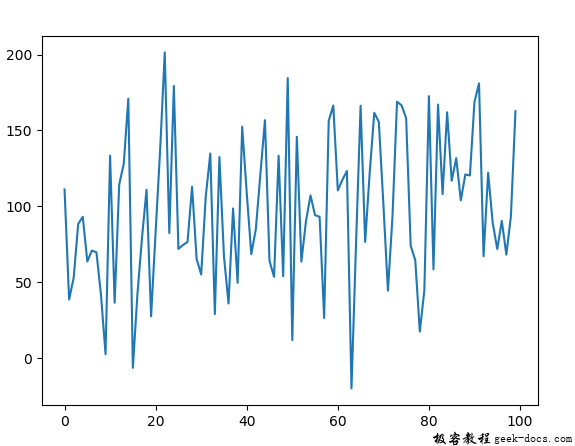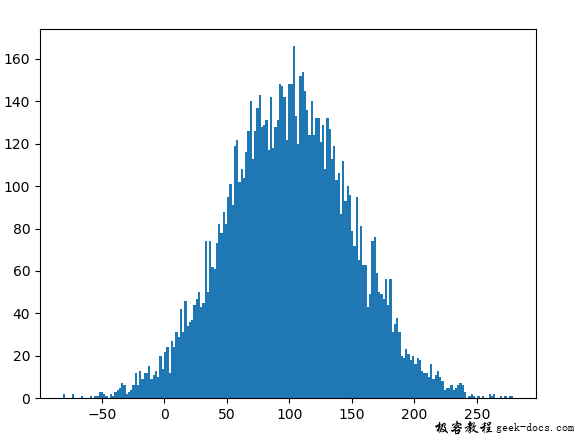Python random.normalvariate()
random模块用于在Python中生成随机数。实际上不是随机的,而是用于生成伪随机数。这意味着这些随机生成的数字可以被确定。
random.normalvariate()
normalvariate()是随机模块的一个内置方法。它用于返回一个具有正态分布的随机浮点数。
语法:Random.normalvariate(mu, sigma)。
参数 :
mu : 均值
igma : 标准偏差
返回:一个随机的正态分布浮点数
例1:
# import the random module
import random
# determining the values of the parameters
mu = 100
sigma = 50
# using the normalvariate() method
print(random.normalvariate(mu, sigma))
输出:
110.86699628241412
例2:我们可以多次生成数字,并绘制图表来观察正态分布。
# import the required libraries
import random
import matplotlib.pyplot as plt
# store the random numbers in a
# list
nums = []
mu = 100
sigma = 50
for i in range(100):
temp = random.normalvariate(mu, sigma)
nums.append(temp)
# plotting a graph
plt.plot(nums)
plt.show()
输出:

例3:我们可以创建一个直方图来观察正态分布的密度。
# import the required libraries
import random
import matplotlib.pyplot as plt
# store the random numbers in a list
nums = []
mu = 100
sigma = 50
for i in range(10000):
temp = random.normalvariate(mu, sigma)
nums.append(temp)
# plotting a graph
plt.hist(nums, bins = 200)
plt.show()
输出:

 极客教程
极客教程